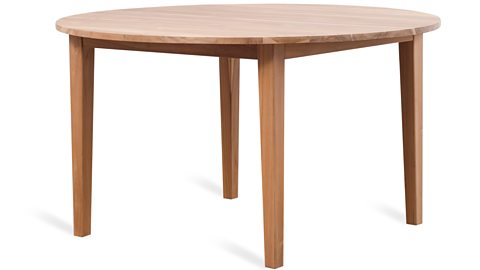Key points about the gender of nouns in Spanish

- All nounThe name of a thing such as an object, a place or a person. Nouns are often described as naming words. have a genderNouns in Spanish are classified into two groups: masculine or feminine. Each noun therefore has a gender..
- The gender of nouns affects which article is used and any adjectives that describe it.
- There are rules in Spanish to help work out the likely gender of nouns.
Video - The gender of nouns in Spanish
Watch the video to understand more about the gender of nouns in Spanish and masculine and feminine forms.
All nouns have a gender and are either masculine or feminine
All nouns in Spanish have a gender. They are either masculine or they are feminine.
Every noun is either one or the other and you just have to learn them.
But there are some clues.
If it ends in o like barco or libro itās usually masculine.
And if it ends in an a like bicicleta or manzana, itās usually feminine.
Ā”Problema, problema, problema!
Un problema is a problem as itās masculine even though it ends in an a. Look out for irregular nouns.
Other important irregular nouns include el »åĆ²¹, which is masculine and la mano, which is feminine.
There are a few other clues to a nounās gender you can look for.
The noun is usually feminine if it ends in dad like la electricidad or tad, as in la libertad or ³¦¾±Ć³²Ō, as in la habita³¦¾±Ć³²Ō.
Masculine and feminine nouns
Usually, nouns that end in o are masculineIn Spanish, all nouns have a gender, either masculine or feminine. and nouns that end in a are feminineIn Spanish, all nouns have a gender and are either masculine or feminine..
For example:
| masculine | feminine |
|---|---|
| Sorry, something went wrongCheck your connection, refresh the page and try again. (boy) | Sorry, something went wrongCheck your connection, refresh the page and try again. (girl) |
| Sorry, something went wrongCheck your connection, refresh the page and try again. (brother) | Sorry, something went wrongCheck your connection, refresh the page and try again. (sister) |
| Sorry, something went wrongCheck your connection, refresh the page and try again. (book) | Sorry, something went wrongCheck your connection, refresh the page and try again. (house) |
| Sorry, something went wrongCheck your connection, refresh the page and try again. (school) | Sorry, something went wrongCheck your connection, refresh the page and try again.(tortoise) |
There are some exceptions to this rule.
For example, the following nouns end in a but are all masculine:
Sorry, something went wrongCheck your connection, refresh the page and try again. - planet
Sorry, something went wrongCheck your connection, refresh the page and try again. - day
Sorry, something went wrongCheck your connection, refresh the page and try again. - map
Sorry, something went wrongCheck your connection, refresh the page and try again. - tram
The following nouns end in o but are feminine:
Sorry, something went wrongCheck your connection, refresh the page and try again. - hand
Sorry, something went wrongCheck your connection, refresh the page and try again. - photo
Sorry, something went wrongCheck your connection, refresh the page and try again. - radio
Gender of nouns - Mini quiz

Is the following noun masculine or feminine?
Cultura
Cultura ends in a and is a feminine noun meaning culture.
Is the following noun masculine or feminine?
Perro
Perro ends in o and is a masculine noun meaning dog.
Masculine and feminine nouns referring to professions
Nouns referring to jobs and ending in o are masculine. They can be made feminine by changing the o at the end of the noun to an a.
For example:
Mi padre es abogado. - My father is a lawyer.
Mi madre es abogada. - My mother is a lawyer.
Nouns referring to jobs and ending in or are masculine. They can be made feminine by adding a to the end of the word.
For example:
El profesor tiene mucho talento. - The (male) teacher is very talented.
La profesora tiene mucho talento. - The (female) teacher is very talented.
Nouns referring to jobs and ending in ista never change and are the same in both the masculine and feminine forms.
For example:
El artista tiene mucha fama. - The (male) artist is very famous.
La artista tiene mucha fama. - The (male) artist is very famous.
Working out the gender - masculine nouns
Masculine nouns generally end in o. There are other nouns that do not end in o that are also masculine. There are some rules to help you.
- Nouns ending in ma are usually masculine.
For example:
Sorry, something went wrongCheck your connection, refresh the page and try again. - problem
Sorry, something went wrongCheck your connection, refresh the page and try again. - programme
Sorry, something went wrongCheck your connection, refresh the page and try again. - language
- Nouns ending in a consonant other than d or z are usually masculine.
For example:
Sorry, something went wrongCheck your connection, refresh the page and try again. - tree
Sorry, something went wrongCheck your connection, refresh the page and try again. - colour
Sorry, something went wrongCheck your connection, refresh the page and try again. - country
Working out the gender - feminine nouns
Feminine nouns generally end in a. There are other nouns that do not end in a that are also feminine. There are some rules to help you.
- Nouns ending in d are usually feminine. For example:
Sorry, something went wrongCheck your connection, refresh the page and try again. - health
Sorry, something went wrongCheck your connection, refresh the page and try again. - equality
Sorry, something went wrongCheck your connection, refresh the page and try again. - nationality
- Nouns ending in z are usually feminine. For example:
Sorry, something went wrongCheck your connection, refresh the page and try again. - voice
Sorry, something went wrongCheck your connection, refresh the page and try again. - nose
Note that arroz, meaning rice, ends in z but is masculine.
- Nouns ending in ¾±Ć³²Ō are usually feminine. For example:
Sorry, something went wrongCheck your connection, refresh the page and try again. - religion
Sorry, something went wrongCheck your connection, refresh the page and try again. - swimming
Sorry, something went wrongCheck your connection, refresh the page and try again. - application
Exceptions
There are some exceptions to the rules described above. It can be hard to tell if some nouns with other endings are masculine or feminine.
For example, nouns ending in e could be either masculine, for example hombre (man) or feminine, for example leche (milk).
If in doubt, itās better to check in a dictionary than to guess.
Quiz - Gender of nouns in Spanish
Practise what you've learned about the gender of nouns in Spanish with this quiz.
Video - More about the gender of nouns in Spanish
Watch the video for more information about how to use masculine and feminine genders in Spanish.
How to use genders and articles in Spanish
How to use genders and articles in Spanish.
In Spanish, every noun has a gender.
Theyāre either masculine or feminine.
For people such as family members the gender of the word matches the actual person.
Madre is feminine and padre is masculine.
Most masculine nouns end in o, like hermano, meaning brother and most feminine nouns end in a, like hermana, meaning sister.
That pattern works for things too.
El telƩfono is masculine.
La guitarra is feminine.
El and la both mean the.
El is for masculine nouns - el perro.
And if thereās more than one, el becomes los - los perros, the dogs.
La is for feminine nouns - la casa and if you have more than one, la becomes las - las casas - the houses.
Un and una, the a or an in Spanish, change depending on the gender of the noun.
Un tenedor but una manzana.
Un and una can be plural too, to mean some.
Unos tenedores or unas manzanas.
Try to remember the gender when you are learning new nouns and then youāll know the right words for the and a too!
Now you have learned about the gender of nouns in Spanish why not explore articles in Spanish?
More on Gender, nouns and articles
Find out more by working through a topic
- count2 of 4

- count3 of 4
